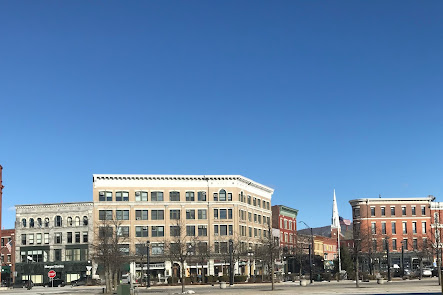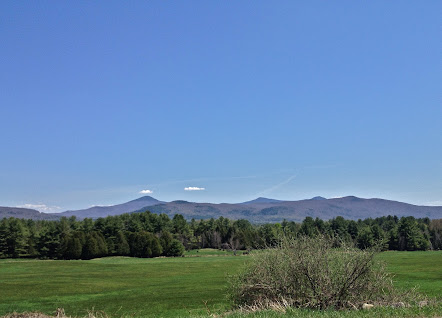The value of the pitch pine in winter is that it holds the snow so finely. I see it now afar on the hillsides decking itself with it, its whited towers forming coverts where the rabbit and the gray squirrel lurk. It makes the most cheerful winter scenery beheld from the window, you know so well the nature of the coverts and the sombre light it makes.
The young oaks, with their red leaves, covering so many acres, are also an indispensable feature of the winter landscape, and the limbs of oak woods where some of the trees have been cut off
H. D. Thoreau, Journal, January 31, 1852
The value of the pitch pine in winter is that it holds the snowso finely. See December 17, 1851 ("The pitch pines hold the snow well. It lies now in balls on their plumes and in streaks on their branches."); January 30, 1841("The snow collects upon the plumes of the pitch pine in the form of a pineapple."); January 19, 1855 ("On some pitch pines it lay in fruit-like balls as big as one’s head, like cocoanuts . . . Under one pitch pine, which shut down to the ground on every side, you could not see the sky at all, but sat in a gloomy light as in a tent"); February 16, 1860 ("How handsome . . . the smaller pitch pines converted into marble or alabaster with their lowered plumes like rams' heads! The character of the wood-paths is wholly changed by the new-fallen snow.") See also A Book of the Seasons, by Henry Thoreau, The Pitch Pine in Winter
The young oaks, with their red leaves. . . are also an indispensable feature of the winter landscape. See January 2, 1859 ("All our large oaks may retain a few leaves at the base of the lower limbs and about the trunks . . .while the same trees when young are all alike thickly clothed in the winter."); January 24, 1852 ("The oaks are made thus to retain their leaves, that they may play over the snow-crust and add variety to the winter landscape") See also December 11, 1858 ("While the oak leaves look redder and warmer, the pines look much darker since the snow has fallen (the hemlocks darker still"); December 21, 1854 ("A perfectly level plain of white snow, untrodden as yet by any fisherman, surrounded by snow-clad hills, dark evergreen woods, and reddish oak leaves, so pure and still"); January 19, 1859 ("What warmth in the withered oak leaves, thus far away, mingled with pines! They are the redder for the warmth and the sun. At this season we do not want any more color."); Compare January 2, 1859 ("The color of young oaks of different species is still distinct, but more faded and blended, becoming a more uniform brown.")












